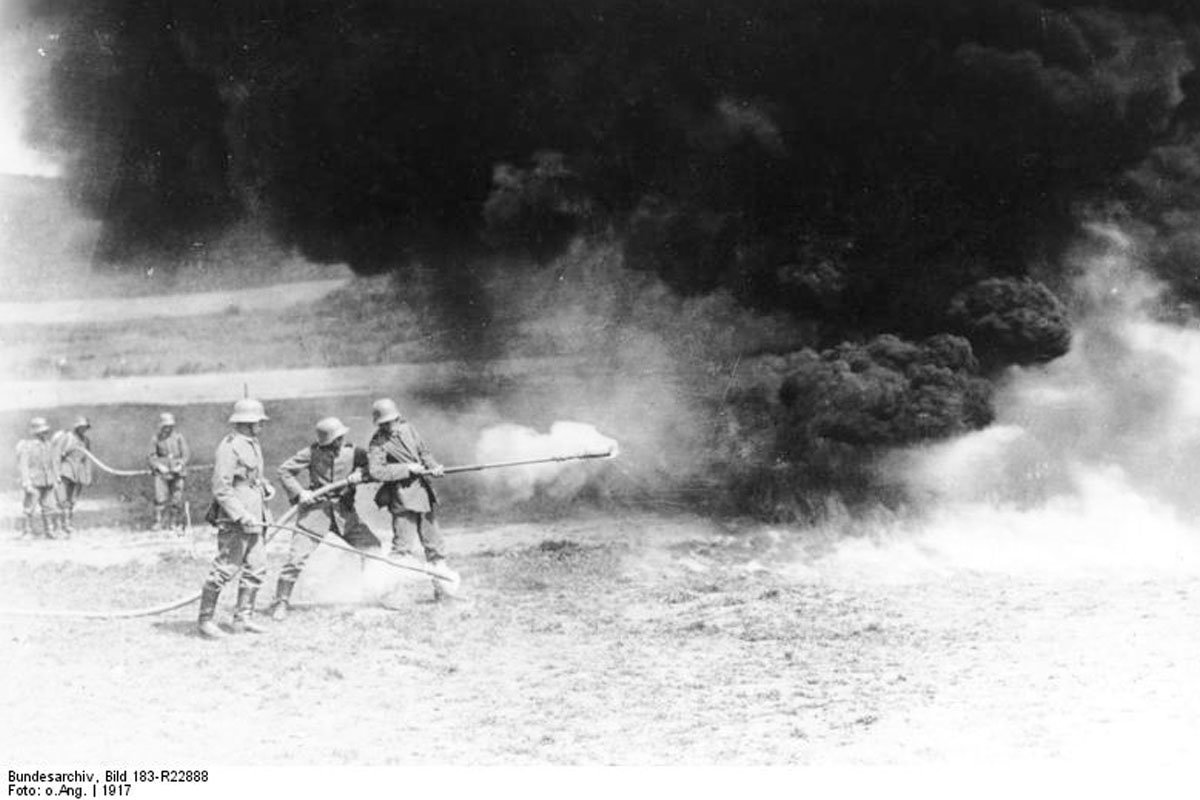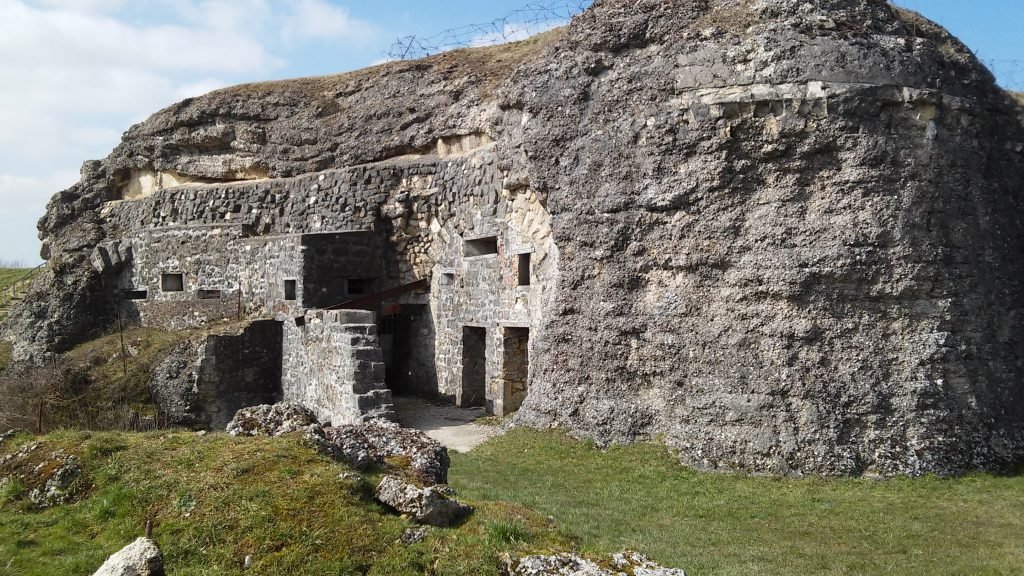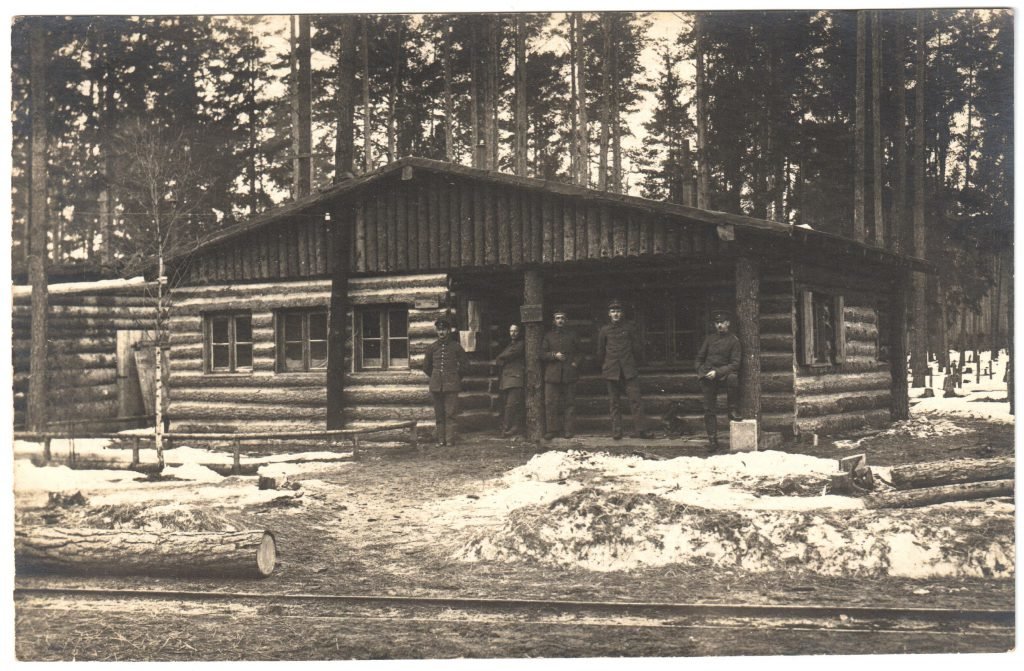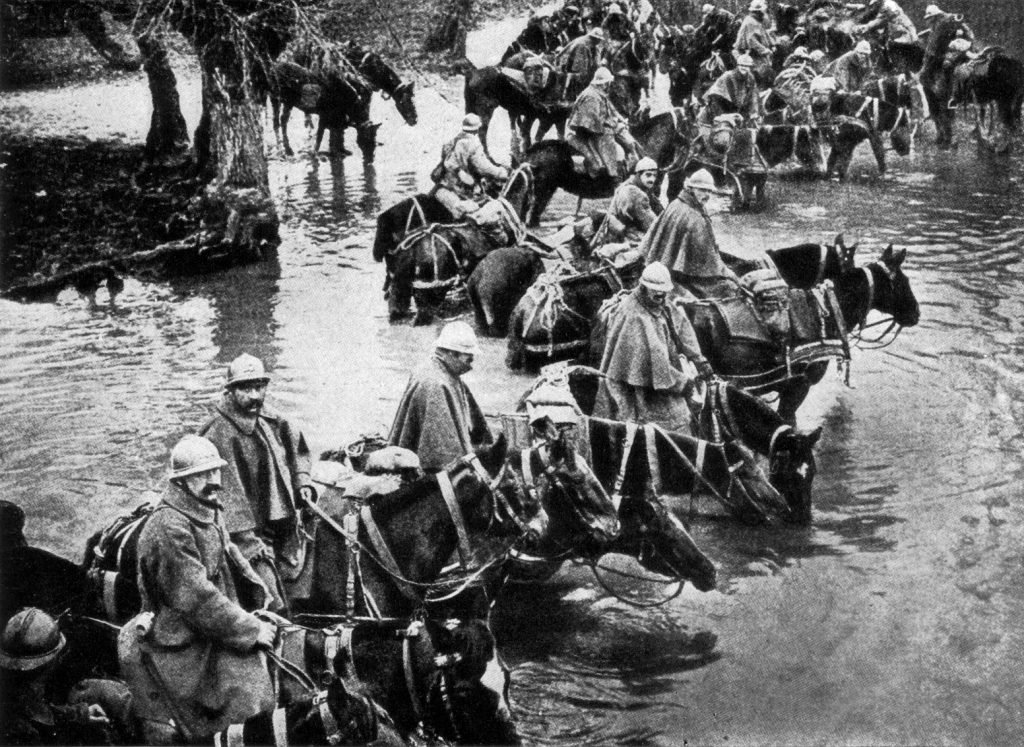German Soldiers Tried to Make Coffee Using Flamethrower Fuel — and 600 Died

ADN-ZB-Archiv I.Weltkrieg 1914-18 Westeuropäischer Kriegsschauplatz 1917 Einsatz von Flammenwerfern bei den deutschen Truppen. [Scherl Bilderdienst]
Making a good cup of coffee can be tricky, but making a passable cup of coffee really isn’t that hard. All anyone really needs is some ground beans and water and preferably a way to heat it.
But any cup of coffee is a decent cup of coffee when you’ve been fighting World War I for three months in the dead of winter. The weather in Europe during the 1916 Battle of Verdun was one of the wettest on record, and the winter of 1915-16 was one of the coldest. Those soldiers needed a warmup, but they went about it all wrong — and the consequences were dire.
By May 1916, German soldiers had been fighting in Verdun, France, since February and their thirst for hot coffee accidentally caused the loss of an important German-held fort in the battle. They also lost more than 600 of their fellow soldiers in the attempt.
Fort Douaumont was an important fortification in the line of defense surrounding the French city of Verdun. It held the highest ground above the battlefields and was the largest fort in the area. When the German army attacked in February 1916, they captured Douaumont on the fifth day of the offensive, without firing a shot. But their advance stalled.

Downpours of heavy rain turned the battlefield into dense mud, causing a delay that allowed the French army time to reinforce its defenses and bring its artillery to bear. The Germans would have to stay inside the protection of the fort’s underground tunnels and steel-reinforced concrete as the French shelled the base.
When May rolled around, the German army was still holed up in Fort Douaumont, exhausted, low on supplies, and likely miserable. Casualties mounted and little ground was lost or gained, just like anywhere else on the Western Front. After the Germans reinforced the fort, the French didn’t even attempt to retake it; they just hurled hundreds of artillery shells at it.
It was the Germans who gave the French army its window of opportunity.
On May 8, 1916, a handful of German soldiers trying to make coffee in the depths of the fort needed a way to heat the water. Already low on supplies, they decided to use the most flammable substance available: flamethrower fuel.
As anyone who’s seen YouTube videos of people throwing gas on a fire can tell you, this did not turn out well.

They tried to beat a hasty retreat from their own fire instead of attempting to put it out, but no one knows if that would even have helped. The months spent inside the fort apparently left the German troops complacent because sitting all too close to their cooking fire was a cache of 155 mm artillery shells, which the flamethrower gas promptly ignited.
Any high explosive would have had a devastating effect on the troops still inside, and not just from fragmentation. Such an explosion can cause four levels of injury.
Chief among these injuries is the blast wave, an overpressurization of the air that can tear apart the lungs, auditory system, and digestive system, along with the concussive force that causes brain injury. Then comes shrapnel. Then the tertiary damage of being thrown by the blast wave into a solid concrete wall. Lingering injuries can also result, as blast victims can die from their wounds long after leaving the hospital.
And that’s just what can happen in an open-air battlefield. Explosions in confined spaces (like, say, the underground tunnels of Fort Douaumont) actually reflect blast waves off the walls of the space, multiplying the force on the victims, which can cause a fatality rate more than 500% higher than in the open.

So when the small cooking fire lit the German ammo dump and rocked the underground tunnel, the blast shot fire and fragments throughout the area. It killed hundreds of German soldiers instantly. More than a thousand were wounded and scrambled to escape from the tunnels.
As these soot-covered survivors crawled out of the tunnel system, fellow Germans shot at them, believing them to be French colonial forces, part of a surprise attack on the fort.
The French army did notice the explosion via the towering plume of smoke coming from the fort and decided to exploit it. After a couple of weeks of planning and gathering the necessary troops, they launched a full-scale attack on Fort Douaumont. It was their first attempt since the Germans had first captured it, and it almost succeeded.
French soldiers entered the fort and took the rear but were fought off by heavy machine gun fire.
It was French colonial troops who later recaptured the fort in October of 1916, with the help of French engineers. After the French shelled the fort with two 400 mm howitzers — the most powerful artillery on the Western Front at the time — the Germans were forced to retreat.
The hundreds of Germans who died in their attempt to make coffee are still there, walled in the underground tunnel of the fort. Instead of removing their bodies just to bury them, their comrades simply walled off that area of the tunnels. Today, it’s an official war memorial site.

Blake Stilwell is a traveler and writer with degrees in design, television & film, journalism, public relations, international relations, and business administration. He is a former US Air Force combat photographer with experience covering politics, entertainment, development, nonprofit, military, and government. His work can be found at We Are The Mighty, Business Insider, Fox News, ABC News, NBC, HBO, and the White House.
BRCC and Bad Moon Print Press team up for an exclusive, limited-edition T-shirt design!
BRCC partners with Team Room Design for an exclusive T-shirt release!
Thirty Seconds Out has partnered with BRCC for an exclusive shirt design invoking the God of Winter.
Lucas O'Hara of Grizzly Forge has teamed up with BRCC for a badass, exclusive Shirt Club T-shirt design featuring his most popular knife and tiomahawk.
Coffee or Die sits down with one of the graphic designers behind Black Rifle Coffee's signature look and vibe.
Biden will award the Medal of Honor to a Vietnam War Army helicopter pilot who risked his life to save a reconnaissance team from almost certain death.
Ever wonder how much Jack Mandaville would f*ck sh*t up if he went back in time? The American Revolution didn't even see him coming.
A nearly 200-year-old West Point time capsule that at first appeared to yield little more than dust contains hidden treasure, the US Military Academy said.












